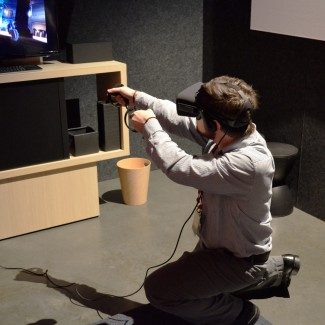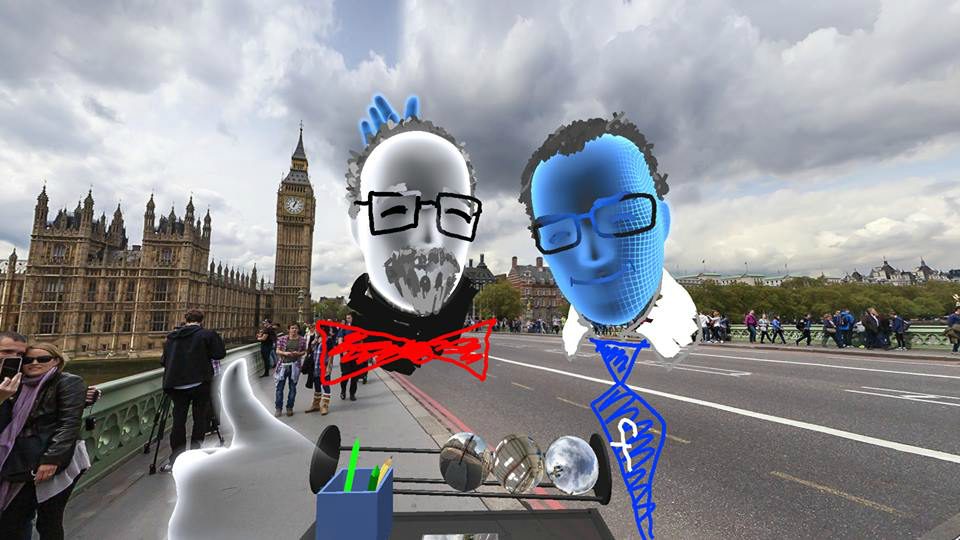Facebook today revealed an early prototype of a social VR space during their F8 developer conference, presented on-stage live by Facebook CTO Mike Schroepfer and by Social VR product manager Michael Booth some 30 miles away.
Like all online social VR applications, Schoepfer and Booth entered Facebook’s environment using a pair of VR headsets, of course in this case the Oculus Rift and Touch hand controllers. Showing off the interactive space together, despite the distance between them, the two toured through 360 photos—presented as bowling ball-sized spheres that grew into the world around them—drew drawings and even took a virtual selfie to upload directly to the Facebook News Feed.
Booth writes in his Facebook post that touring London virtually was “almost as good as being there.” Booth continues:
“This is just the beginning of our exploration into how people can connect and share using today’s VR technology. There’s a lot more work to do and many more challenges to solve—such as how to better model ourselves within VR, so we can elevate ‘presence’ from a disembodied head and hands to a more expressive model of a person. Our engineering and research teams are also working to improve the tracking, optics, and audio technologies that make VR feel so real. There’s much more to come as my team and Daniel James’ team continue to push forward, working closely alongside Oculus and other teams at Facebook, as VR evolves into an increasingly important computing platform.”

Many of the conventions we see in the newly revealed social space aren’t exactly ground shaking—complete with your standard floating heads and armless hands—but the fact that Facebook is throwing their weight behind it directly instead of letting Oculus develop could mean tighter integration into Facebook’s traditional platform.
And while we don’t claim to be Kremlinologists, the company’s prototype shows a modified head model asset that appears to be taken from Oculus’ Toybox demo, a crazy sandbox prototype built to show off the Oculus Touch controllers in action. Though it may appear that the new social VR prototype is based on Toybox, anyone who’s played it before will probably tell you that it’s one of the coolest social VR experiences, with much more interactivity than what we saw from Facebook today.







